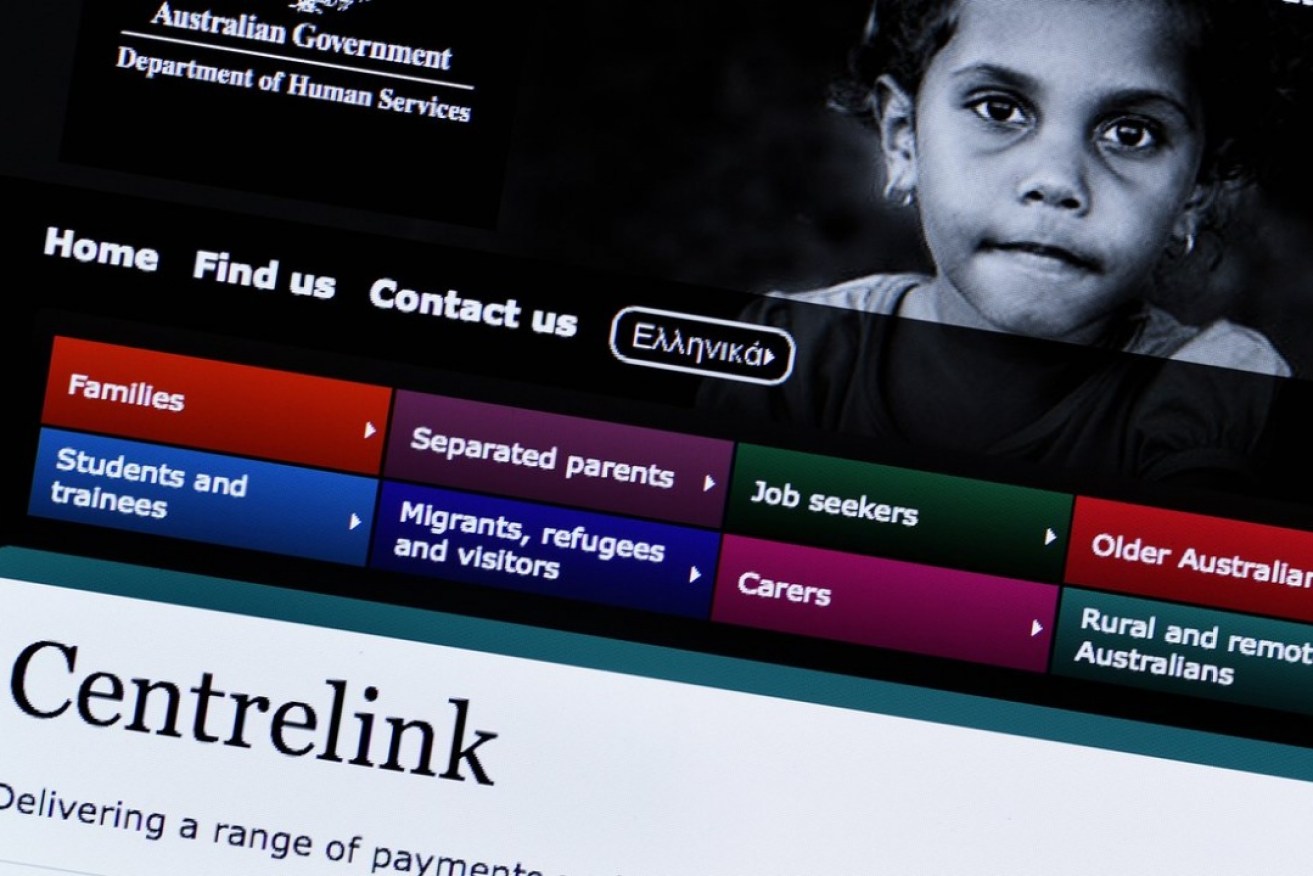‘Doxing’: Centrelink’s release of single mum’s personal details sparks outrage


Centrelink's decision to release a single mother's private information to a journalist has sparked privacy fears. Photo: AAP
Centrelink’s decision to disclose personal information about a single mother who publicly criticised the agency has sparked fears it could have “chilling effect” on those looking to speak out.
The Department of Human Services has come under fire for providing a journalist with Centrelink details belonging to welfare recipient and blogger Andie Fox, who went public with her claim that the agency “terrorised” her over an ex-partner’s debt.

Centrelink has been criticised after it released a critic’s private information. Photo: AAP
Later, Fairfax news outlets published an opinion piece that defended the agency, setting out Ms Fox’s case with personal information provided by Centrelink.
Ms Fox has said some details were incorrect and has lodged a formal complaint with the department.
But the development has troubled law experts and privacy advocates, who say releasing the private information could have a “chilling effect”.
What is doxing?
Centrelink’s critics have compared Ms Fox’s situation to “doxing”, which refers to when a person’s private or identifying information is published on the internet without consent.
Australian Privacy Foundation chair Kat Lane warned of the consequences of a government agency disclosing someone’s personal information just because they were “having a war in the media”.
“The citizens of Australia should be able to criticise Centrelink, or a bank, or anyone and not expect their very personal information to come out in the media,” Ms Lane said.
“I would argue commercial entities would not do this. So we have a lesser standard of privacy for people dealing with the government than they do dealing with a bank, for example.
“It’s ridiculous that the government might release sensitive personal information about them.
“People will be scared about speaking out now.”
The department said it could disclose the information under two sections of social security law, sections 202 and 162.
Human Services Minister Alan Tudge has also defended the decision, telling Parliament the “information was provided to correct the record”.
Dr Darren O’Donovan, a senior lecturer at La Trobe Law School, questioned whether those laws applied in this case.
He said the move could also “have a chilling effect” on those who want to criticise government agencies.
“The purpose of Section 202 is to allow government decision-makers to release information to each other for practical decisions and applications,” Dr O’Donovan told The New Daily.
“It doesn’t, I don’t think, or it’s very contestable whether it allows it to be released to the public.”

Human Services Minister Alan Tudge has defended the decision. Photo: AAP
Earlier in the week, Privacy Commissioner Timothy Pilgrim confirmed he has asked the department to explain itself.
Ms Fox, who described the situation as a “disturbing experience”, told The New Daily she was still waiting for the outcome of her complaint to the department.
A Department of Human Services spokeswoman said the department only disclosed information “necessary to correct any factual inaccuracies or potentially misleading information”.
“Disclosing personal information to respond to criticism raised in the media about the treatment of a particular individual is for the purposes of the relevant law, as it is necessary to maintain public confidence in the administration of the law,” the spokeswoman said in a statement provided to The New Daily.
A 2010 decision from the Office of the Australian Information Commissioner found that someone who complained in the media was “reasonably likely” to know the agency might respond publicly and reveal their personal information in the process.
But Ms Lane said she believed that decision was incorrect and urged Ms Fox to make a complaint to the privacy commissioner.








